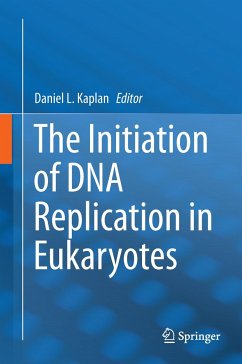
Computational Psychiatry
A Systems Biology Approach to the Epigenetics of Mental Disorders
Versandkostenfrei!
Versandfertig in 6-10 Tagen
113,99 €
inkl. MwSt.
Weitere Ausgaben:

PAYBACK Punkte
57 °P sammeln!
This book explores mental disorders from a uniquely evolutionary perspective. Although there have been many attempts to mathematically model neural processes and, to some extent, their dysfunction, there is very little literature that models mental function within a sociocultural, socioeconomic, and environmental context.Addressing this gap in the extant literature, this book explores essential aspects of mental disorders, recognizing the ubiquitous role played by the exaptation of crosstalk between cognitive modules at many different scales and levels of organization, the missing heritability...
This book explores mental disorders from a uniquely evolutionary perspective. Although there have been many attempts to mathematically model neural processes and, to some extent, their dysfunction, there is very little literature that models mental function within a sociocultural, socioeconomic, and environmental context.
Addressing this gap in the extant literature, this book explores essential aspects of mental disorders, recognizing the ubiquitous role played by the exaptation of crosstalk between cognitive modules at many different scales and levels of organization, the missing heritability of complex diseases, and cultural epigenetics. Further, it introduces readers to valuable control theory tools that permit the exploration of the environmental induction of neurodevelopmental disorders, as well as the study of the synergism between culture, psychopathology and sleep disorders, offering a distinctively unique resource.
Addressing this gap in the extant literature, this book explores essential aspects of mental disorders, recognizing the ubiquitous role played by the exaptation of crosstalk between cognitive modules at many different scales and levels of organization, the missing heritability of complex diseases, and cultural epigenetics. Further, it introduces readers to valuable control theory tools that permit the exploration of the environmental induction of neurodevelopmental disorders, as well as the study of the synergism between culture, psychopathology and sleep disorders, offering a distinctively unique resource.












